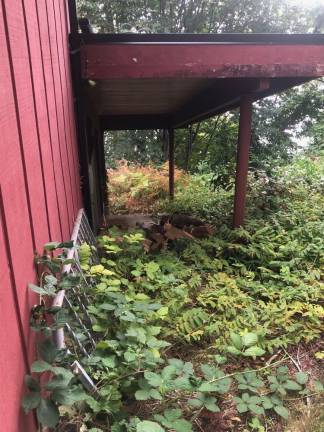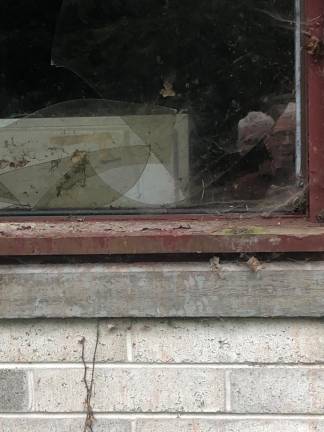Meadow-Mind: a negotiated truce


I’ve spent the last three months living very near a “condemned” property on the rugged Olympic Peninsula in Washington.
Condemned is quite a diagnosis to live with. It evokes deep-buried images of war-torn villages, churches leveled, wild dogs, lingering strains of plague and unknown cancers. This one was due to a muddy landslide 20 years ago. A force of nature made itself known. The pleasant 70s era house – all brick and stone – was inundated with water, mud, gravel, boulders and then... Black Mold. The trimmed and level lawns and terraces were pitted by deep gulleys. In these last few decades, the volunteers have taken over. (I don’t mean helpful neighbors.) Lots of trees, mostly aspen, have claimed what was open space. And whatever tried to stay “lawn” is now in a clear losing battle with heartier “weed” species. I was living close enough to get a strong dose of what I’ve come to recognize and appreciate as “Meadow-Mind.”
Meadow-Mind is a negotiated peace with nature, where you have to let go of tightfisted control over your piece of nature. Yes, engage, but less aggressively. Use sharp noisy tools less often. Agree to let the lawn, or parts of it, evolve into its meadow ways – slightly disordered and unpredictable. “What’s coming up next?” You can learn more about patience, curiosity and surprise. There may have to be a tryout period to see if it really works. Likely, it will. Maybe not.
There are other surprising sides to condemned property, beyond meadowing. It evokes caring and tending, the chance to create small orders from disaster. It puts us in touch with the feral, jungle mentality lurking behind most all our civilized activities. It offers a reminder of a larger, older story and longer rhythm than we ordinarily sense: that things leave our lives, and others appear; that, like a meadow, we are called to be “shapeshifters” recreating meaning in our lives after inevitable events, personal mudslides and condemnation.
What we call “real,” the condemned property reminds us, is just today’s version, a flicker, of different experiences, some perceived, some remembered, some imagined.
Where to go? Just start to notice the abandoned houses, falling down sheds, ghostly barns in your daily travels.